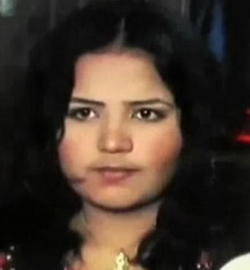
Islamabad, August 11: A 14-year-old Hindu girl who was abducted two days ago has converted to Islam and married a Muslim in Pakistan, a media report said but her distraught father says that she "can never give up on her religion, she has been coerced into doing it".
Manisha Kumari, 14, is now Mahvish and herself called up her parents from an unknown location and broke the news of her conversion. She claimed it was voluntary as was her love-marriage with a man named Ghulam Mustafa Channa, said Geo News citing reports. It, however, did not explain what type of reports it had accessed.
The girl's father, Ravet Mal, alleged that her kidnappers have forced her to convert and marry. "She can never give up on her religion, she has been coerced into doing it," he told Geo News.
Sanjay Singh, the girl's uncle, said that her voice wavered on the phone and it seemed as if she was saying all this under pressure.
"She sounded scared on the phone, it's not what it seems. There were people around her dictating to her, we could hear them giving her instructions," he said.
Sindh has a sizeable population of Hindus, who are the largest minority community in Pakistan.





Comments
Add new comment